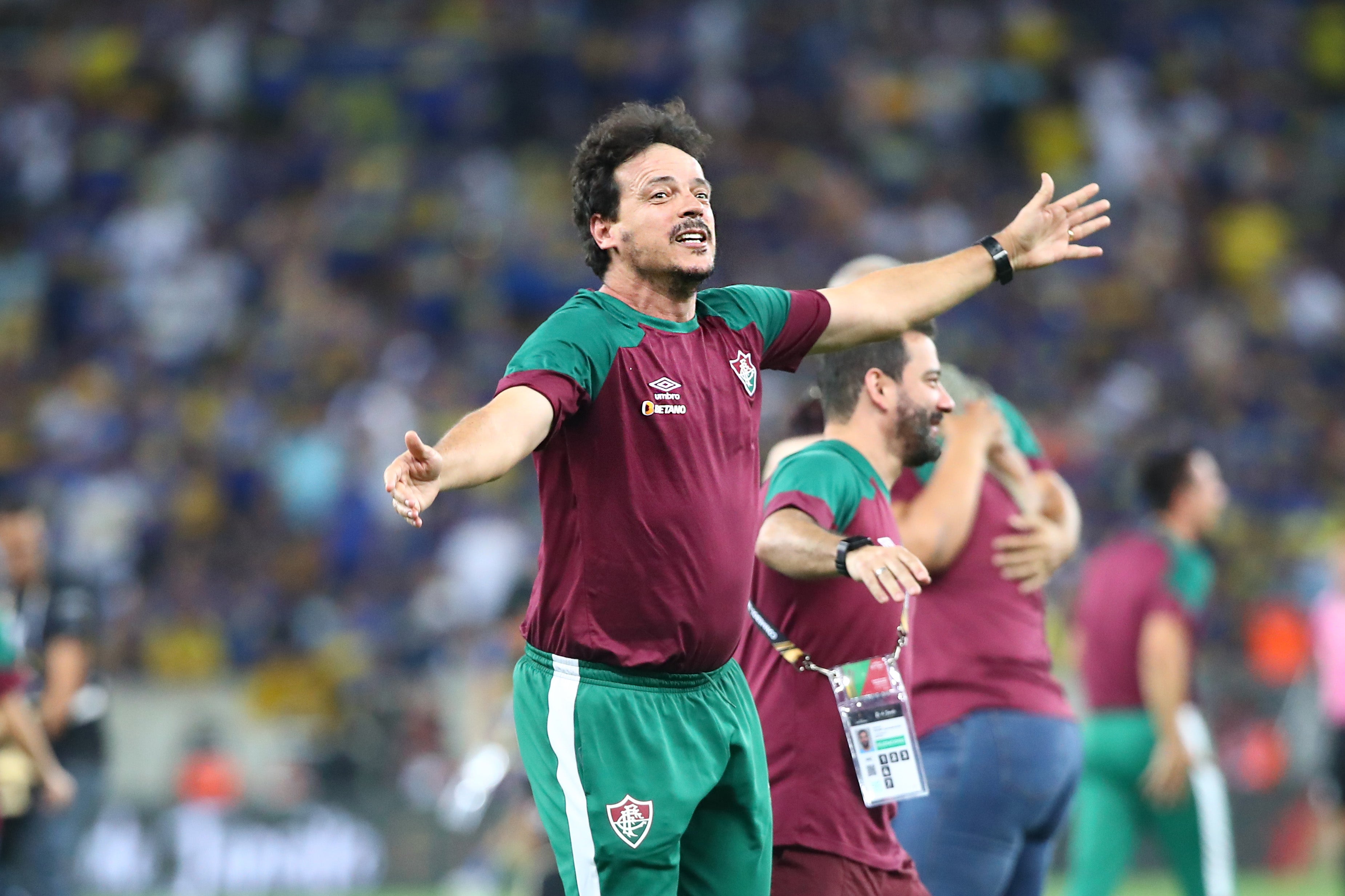Meet Henrik Rydstrom, the Malmo manager playing Brazilian football: ‘We try to create chaos’
Henrik Rydstrom has transformed Malmo into free-spirited entertainers
Sign up to Miguel Delaney’s Reading the Game newsletter sent straight to your inbox for free
Sign up to Miguel’s Delaney’s free weekly newsletter
Thanks for signing up to the
Football email
In the Swedish coastal town of Kalmar, Henrik Rydstrom is a hero. He spent virtually his entire playing career representing Kalmar FF, as a tough ball-playing midfielder and a warrior captain who led the club to their only Swedish title in 113 years. After two decades of service, the No 8 shirt was retired in tribute.
Rydstrom was not a stylish player, by his own admission. He once wrote in a blog: “Our goalkeeper has a friend who thinks of me when he has sex with his girlfriend. He thinks of me to delay ejaculation. That’s how unsexy my style of play is.” Kalmar played “boring” football, Rydstrom tells me. “I didn’t think too much about it, but there were a lot of restrictions – ‘you’re not allowed to do this, not allowed to do that’. The coach was always thinking about what could go wrong.”
Then they qualified for Europe and played Dutch side FC Twente in the Intertoto Cup. Twente passed Kalmar to death over two legs. “What I had been taught as a player was that you have to play forward as fast as possible, win the second ball, counterattack, defend. Then we played this team who moved the ball sideways and it was like, OK, you’re allowed to do that? What the f**k?!”
Rydstrom’s worldview had been turned upside down. When he stopped playing at 37, he began coaching Kalmar’s youth teams. “I started to think about football. Do I want players who are afraid on the pitch? How can we create a culture and atmosphere where the players enjoy themselves?”
He studied the ideas of Marcelo Bielsa, and when he became Kalmar’s first-team manager in 2021, he quickly established an attacking style the club had not seen before, based around quick, intricate passing moves. “We played terrific football, it was like boom-boom-boom,” he says animatedly.
Rydstrom led Kalmar from the bottom half to the top four in two seasons, when he was offered the biggest club job in Sweden, managing Malmo. Fans and the media were sceptical about whether his obsession with style would work at a club where second place is unacceptable. “When I arrived here at Malmo everybody was like: ‘You can’t do that here. You need to win.’”
Rydstrom disagreed. He wanted to win, of course. But he wanted people to talk about how they won.
Rydstrom is not your typical football manager. His favourite author is Dostoevsky. He taught high-school literary studies during his early years to supplement his income, and wrote music reviews for magazines and newspapers. In 2012, he stood on stage at an event for the Swedish Social Democratic Party to denounce the scourge of xenophobia in society.
He likes to read about football theory, and last year he came across the articles of a Scottish coach and writer, Jamie Hamilton. In them, Hamilton outlined the seven principles of “relationism”, a philosophy of attacking movement without fixed positions, in contrast to the “positional” football mastered most famously by Pep Guardiola and mimicked around the world.
If positional football is strict and precise, relationism is an antidote to that, a place for liberty and expression. “The free-jazz of relationism differs from the classical scores of more positional styles,” Hamilton writes, later adding: “If chess is an appropriate metaphor for positional possession play then perhaps relationism is more like a chaotic game of Snakes and Ladders.”
There is a wistfulness to Hamilton’s writing, as if some of the panache of old South American football has been smothered and lost by the popular European style. But the positional “machine” gripping football faces an uprising, led by Brazilian manager Fernando Diniz and his entertaining, free-flowing Fluminense (intriguingly, they meet Guardiola’s Manchester City in the Club World Cup final on Friday).
“I noticed that he wrote about Diniz,” says Rydstrom. “So I started to look at Fluminense’s games and then I got inspired, like, that looks fun! I showed Anders Christiansen, my captain, 10 clips of Fluminense. And I was like: ‘Look what they’re doing, can we do our version of that?’ And he was like, ‘F**k yeah’.”
Fluminense coach Fernando Diniz gestures from the touchline
Fluminense won the Copa Libertadores in style
In his first preseason, Rydstrom started introducing his principles to Malmo training. Rather than spreading out, stretching the pitch and holding their positional shape, he told his players to get closer to the ball, even if it meant leaving gaping holes elsewhere.
“This was all new for them, so I really persisted: ‘Come to the ball’, and of course it went against their instincts. I showed some players how Fluminense overload, and that you don’t have to stay in ‘this position’. Malmo played more positional last season, and now I took away this prison they were put in.”
Coaching a new style wasn’t easy. Some players had spent a lifetime playing a certain way and found Rystrom’s training hard to grasp, like the experienced former Ajax captain Niklas Moisander.
“Like any central defender he called for the ball – ‘play me, play me!’ He got the ball, and then he switched it to the other side where we only had one player. And Anders Christiansen was looking at me, like: ‘What the f**k, I have to run to the other side!’ So the whole overload moved over and then Niklas called for it one more time and switched back to the other side,” Rydstrom laughs. “You are of course allowed to switch but then you really need to put the team in a better situation than you had before, and he didn’t.”
Above all, Rydstrom wanted to put his own beliefs about football, and about life, into his team. “If you’re gonna get the players with you and make them sacrifice themselves, then you must have your own personality in the way you play,” he says. “We share the ball, and that creates a connection.”
***
Rydstrom quickly transformed Malmo into a team who smothered their opponents. What looked like unscripted chaos to the untrained eye were movements practised on the training pitch, in a Swedish twist on Dinizismo. Malmo displayed some of the same patterns: players bunched to one side in a “tilt”, diagonal balls, short passes and sudden surges in tempo to overwhelm defences. Notionally it was a 4-2-3-1 formation, though it rarely stayed that way.
Playing under Rydstrom was liberating. Players were free to link in creative ways and use their imagination. As midfielder Mahame Siby described: “Imagine being a football player and entering the field with a coach who tells you, above all, to have fun and be as daring as possible.”
Malmo climbed from seventh the previous season to title challengers. Like something from a film script, the race went down to the final day: second-placed Malmo hosted leaders Elfsborg in an all-or-nothing game for the Allsvenskan crown. “I didn’t need to do any Braveheart speech,” says Rydstrom. “We have this saying, ‘go for the throat’. I could just remind the players that we don’t back down, we go for the throat.”
It was a hard-fought match, which had to be paused for half an hour when fans’ pyrotechnics set off the fire alarms. But Malmo got over the line, winning 1-0. Supporters swarmed onto the pitch, and the players partied long into the night.
Rydstrom is speaking while packing suitcases for a family holiday to some winter sun. His kids are playing in the background. The win over Elfsborg came in late November, and it is time for a break.
He has confounded critics who felt he couldn’t win the title playing his way. In fact, he took Malmo further down the “relationist” rabbit hole than Kalmar ever went. There are similar traits popping up around Europe – you can find them in Marco Rossi’s Hungary team, in Real Madrid under Carlo Ancelotti – and Rydstrom thinks it will spread, even if a positional approach will always be more popular.
“I think more and more will try to play this way, but it’s not so structured for the eye, so in one way it’s more difficult to coach. It’s not that we just go out and play, ‘do your thing’ – it’s really drilled. We try to create chaos but we have a structure in that, and then you need to get the players to understand that. Positional play has online courses so even a Division Four coach in Sweden could teach themselves and then instruct the players.”
Perhaps Rydstrom will spread the gospel himself. He is very happy at Malmo, excited by the prospect of European football next season, but after spending so long in southern Sweden, he would relish the challenge of coaching abroad.
“When I played I didn’t want to go anywhere at all, but now I really want to. If you talk about England, it’s not easy for a foreign coach to succeed. But to try another league, another country? Yeah, definitely. But I’m really enjoying myself here, so first I want to fulfil the potential in Malmo.”
It was European football which first opened Rydstrom’s eyes to ideas beyond Sweden’s shores. He set out to become a coach who plays with freedom and joy, and he has done that. And in one sense he has already achieved his goal at Malmo, too: they won, and people are talking about how they did it.
Source: Read Full Article



